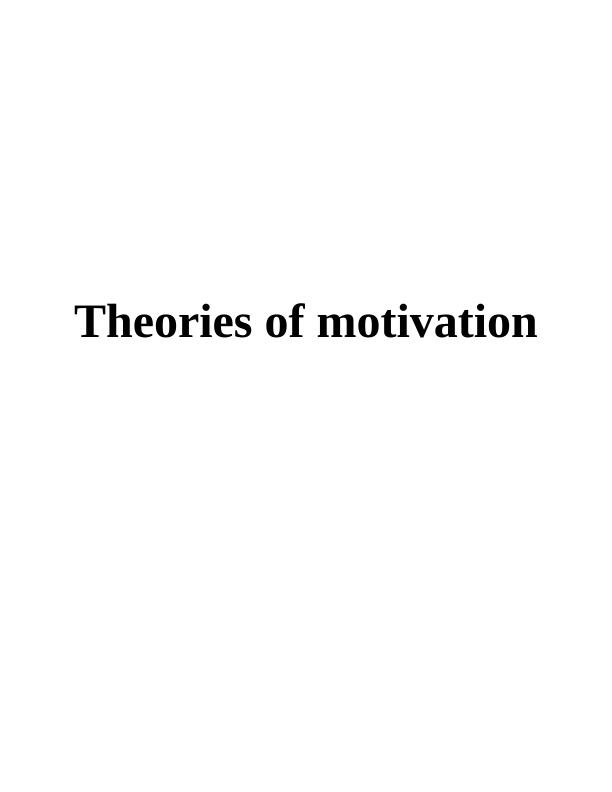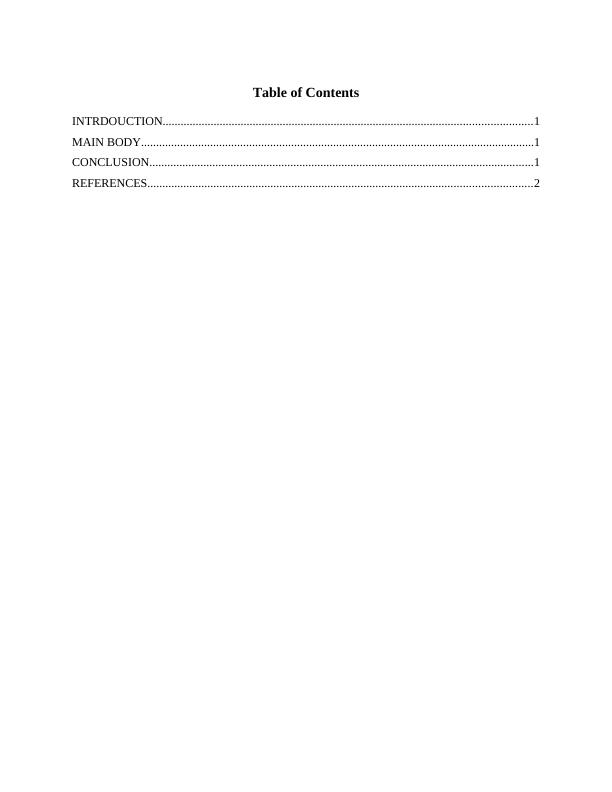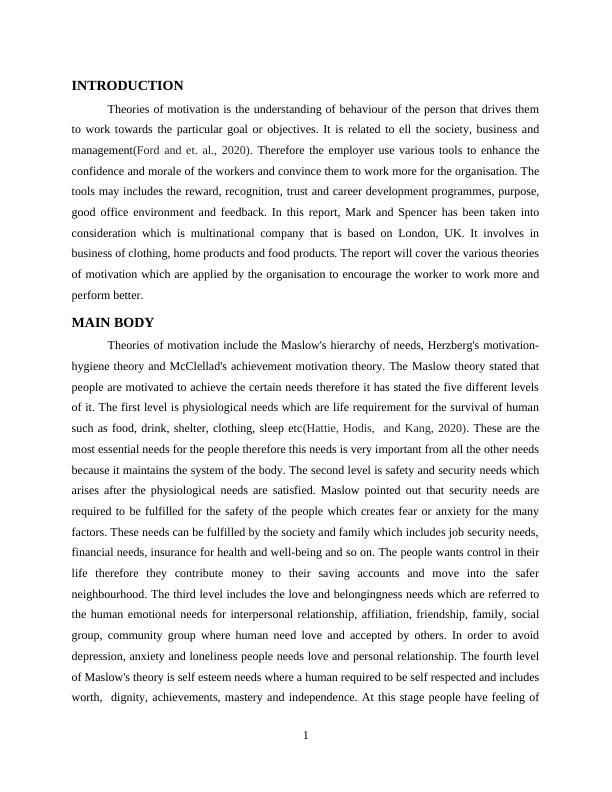Theories of Motivation: A Case Study of Mark and Spencer
Added on 2023-06-11
8 Pages1885 Words116 Views
End of preview
Want to access all the pages? Upload your documents or become a member.
Motivation Theories and their Implementation on Marks & Spencer
|7
|1527
|500
Theories of Motivation and Their Application in Modern Workplace
|7
|1757
|204
Application of Maslow's Theory and Herzberg's Two Factor Theory in Motivating Employees: A Case Study of Warner Leisure Hotels
|8
|1369
|335
Understanding why people work: Factors, Motivation, and Strategies
|9
|2135
|296
Motivational Theories and Their Implication in Modern Workplace
|8
|1959
|250
Leadership and Management: Approaches and Theories for Performance Management
|19
|2138
|441



